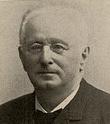Natrum-mur [Nat-m]
Chronic malaria in cachectic persons with dead, dirty withered skin; palpitation and fluttering of heart; dyspnoea; splenitic stitches; suppressed menses, leucorrhoea; diminished sexual desire; sadness; gets easily tired, (>) towards evening; sand and tearful disposition.
Nux-vomica [Nux-v]
Irritable and angry; anxious about little things, headache; with bilious or sour vomiting, (<) morning; pale, earthy face; feeling badly after bread or sour things; craving for chalk; nausea and vomiting mornings and after eating; cardialgia, with wind in stomach, (>) from drinking something hot; obstinate constipation; dreads motion and fresh air.
Phosphorus [Phos]
Deep-seated chronic cases, with tubercular diathesis, brought on by depressing mental influences, such as grief, worriment, by exhausting bodily causes. Puffiness around the eyes; dry, hacking cough; great weakness in the sexual organs; total loss of energy in all the organic functions of the body.
Plumbum [Plb]
Severe old chronic cases, after abuse of iron; want of breath and great oppression of chest during motion; palpitation; vomiting of food mornings, with great weakness; pronounced sound in right carotid about neck; gastralgia; menses regular, but pale; face pale, waxy, yellowish, like a corpse; every exertion is too much; constipation, with stool like sheep’s dung.
Platina [Plat]
Irritable women, inclined to sadness, easily frightened, great anxiety and fear of death; shivering all over the body; pale and worn face; mucous, clammy taste; inappetency or bulimy; burning; contracting, throbbing pain in stomach and abdomen; constipation or painful and profuse menstruation.
Pulsatilla [Puls]
After abuse of iron or quinine; face pale and puffed, with sensation of confusion in head and dizziness; slimy, insipid, putrid taste and foul breath; dislike to all food; no thirst, but desire for beer, liquors, lemonade; frequent acid or bitter eructations; nausea; greenish, slimy of bilious vomiting; shooting, pulsating pains in pit of stomach and abdomen (<) by touch or motion; suppression of menses with colic, nausea and general coldness of the body; thick, acrid leucorrhoea, oedema of the feet; constant chilliness; great tremulousness, weariness and nocturnal sleeplessness; tendency to diarrhoea.
Sabina [Sabin]
Amenorrhoea; frontal headache, pressing down upon eyes; (<) in morning on rising, (>) in fresh air; blue rings around eyes; nausea and qualmishness when in a crowd; burning in pit of stomach, with twisting and gurgling in bowels; bearing down; pain in extremities, (<) at night; lassitude and sleeplessness.
Senecio [Senec]
Chlorosis in scrofulous girls, with dropsy, anaemia; dysmenorrhoea, especially where the strumous habit is present; leucorrhoea instead of menses, or with urinary troubles, retarded and scanty menses.
Sepia [Sep]
Chloasma of face and bridge of nose; uneasiness in presence of strangers; sudden flushes; staring at trifles; dreams with good sleep; bearing down as if everything would come out of the genitals; leucorrhoea yellowish and passing away in starts; swelling of external genital organs, with itching, burning and soreness; intermittent pulsations of heart; palpitation; nausea brought on even by the smell of cooking; tongue coated, mostly at root, clearing off in patches, leaving red surface; irritable and averse to her usual household duties.
Sulphur [Sulph]
Heat of head with cold feet; inclination to religious reveries; inflammation of eyelids; frequent, unsuccessful desire for stool; oppression of chest with palpitation of heart; exhaustion even from talking, (<) while standing; sleepy in daytime, restless at night: perspires easily; faint before dinner; leucorrhoea; menses too late, of short duration, or suppressed; blood thick, dark, acrid, makes things sore.
Thuja [Thuj]
Chlorosis with oedematous swelling, first of face, about abdomen in both lower extremities; menses at right time, but profuse and watery; aphthae; longs for cold food and drink.
Ustilago [Ust]
Chlorosis with amenorrhoea and tendency to phthisis pulmonum; dry fatiguing cough, with stitching pains in chest, especially left side; night sweats; no appetite; great debility; pain in ovaries, especially left side; menses scanty, with ovarian irritation, or profuse, frequent, containing coagula.
Veratrum-alb [Verat]
Girls inclined to melancholy and sadness; excessive chronic weakness; emaciation; cold, wan and pale face, thirst with desire for acids, or very cold drinks, but vomits immediately afterwards; menses suppressed, with delirium; pains in loins and back, rapid swelling and icy coldness of feet.


